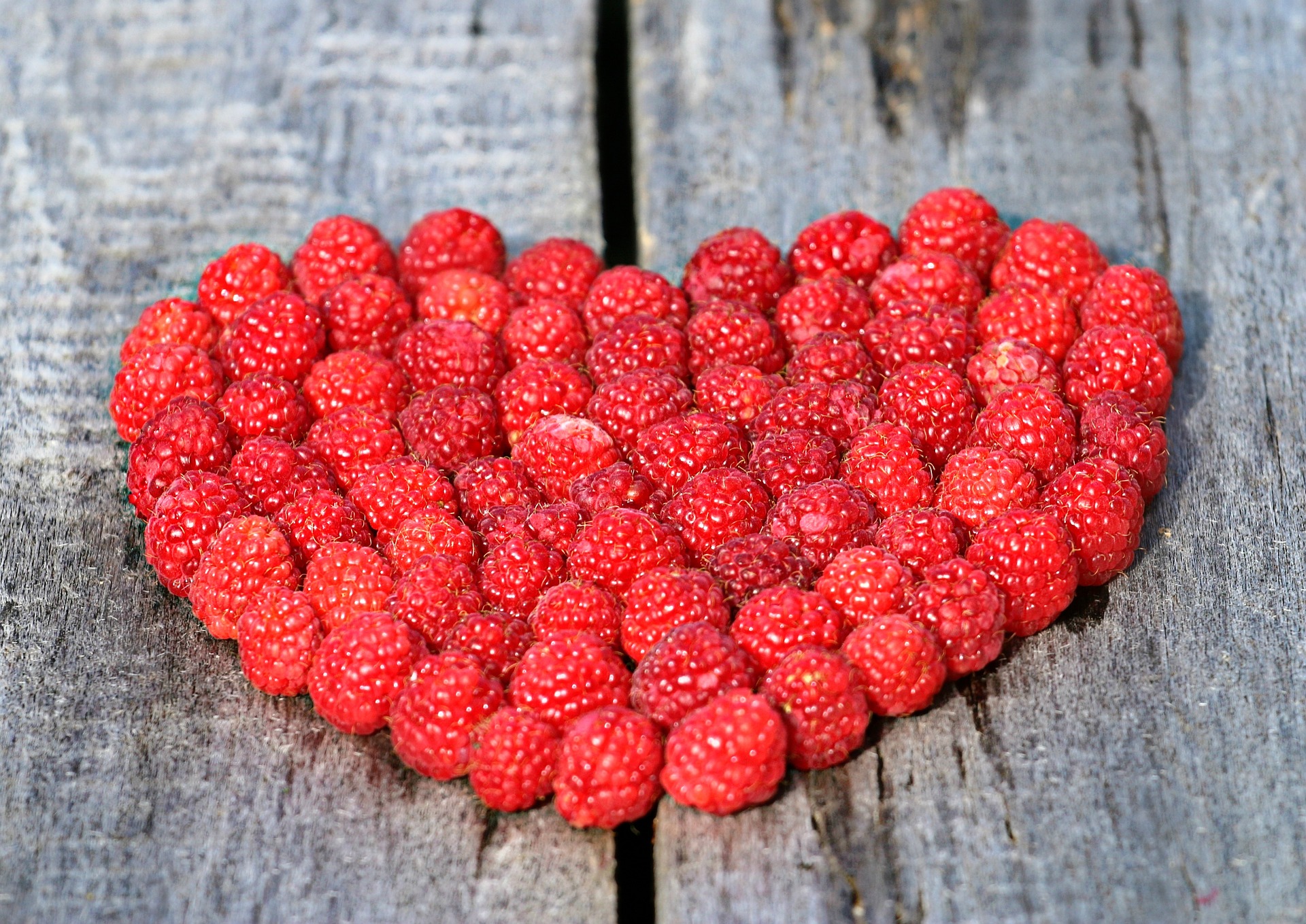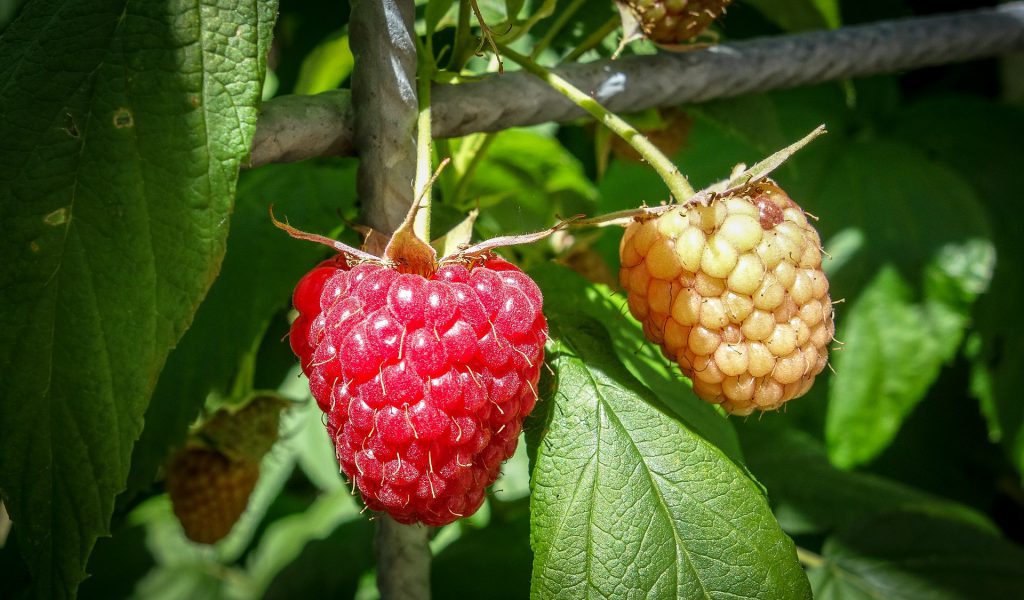Products
Raspberries, the fruits of the Olympus gods
Legend has it that raspberries are originally a white fruit. The nymph Ida, daughter of the King of Crete and nurse of Zeus, wanted to pick a raspberry to calm his sorrow. She pricked her breast with the raspberry thorns and the fruit then turned a blood-red colour. More seriously, wild raspberries come from the mountainous areas of Europe. Wild plants can still be found in the Alps, the Massif Central and the Vosges. The name “raspberry” is said to come from the misrepresentation of the term “wild strawberry”. The scientific name of raspberries is “Rubus idaeus”, in reference to the legendary nymph. The first red raspberries were cultivated in the Middle Ages and their production became more widespread in the 20th century.
“Identity card”
Raspberry is part of the rose family. Usually red, it can also be black, yellow, orange, amber or white. Raspberries are made up of several small seeds called Drupeoli, each containing a seed. Raspberry trees are divided into rising species (which bear fruit twice a year, in June and September) and non-rising species (growth is carried out on the canes of the previous year). Harvesting takes place from June to September, depending on the species.
A high nutritional density
Raspberries have one of the highest mineral densities for a fresh fruit: it provides more than 1300 mg of minerals per 100 kcalories. And its densities of magnesium (53 mg/100 kcalories), calcium (58 mg/100 kcalories) and iron (1.8 mg/100 kcalories) are quite remarkable. It therefore contributes effectively to meeting the body’s mineral needs.
The same is true for vitamin C intake: a 100 g serving of raspberries provides 25 mg, or more than 30% of the recommended daily intake! It is known that vitamin C levels decrease rapidly after harvest. But raspberries are a fragile fruit, which cannot be kept for more than 2 or 3 days at most. And its high organic acid content protects vitamin C from oxygen destruction in the air. That’s why when you eat raspberries, you always get the maximum amount of vitamin C!
Antioxidants that are good for us
Raspberries contain a good number of antioxidants in the form of anthocyanins, gallic acid and ellagic acid. Thanks to these molecules, raspberries have a preventive action against certain cancers (colon, breast, liver, prostate, esophagus, mouth, cervix), cardiovascular diseases, and so-called civilization diseases.



